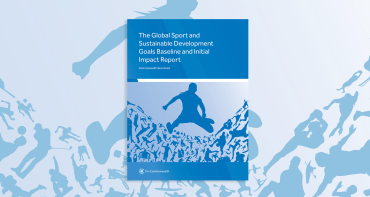World AIDS Day Statement 2014
Today we salute the vital contribution of all those involved in the fight against the AIDS epidemic. It is because of their dedication and commitment that we can say with some confidence that we are beginning to turn the tide on HIV transmissions and mortality rates. Today many more people living with HIV and AIDS are enjoying long and fulfilling lives.
Unimaginable just a few years ago, this progress has been made possible thanks to the concerted efforts of a broad coalition of nurses and doctors, researchers and scientists, international organisations and governments, and civil society groups.
However Commonwealth countries are still disproportionately affected by HIV. Two of our regions, sub-Saharan Africa and the Caribbean, suffer from the highest rates of prevalence globally. These are also the only regions where women and girls outnumber men and boys among people living with AIDS.
The ultimate aim, to eliminate AIDS-related deaths, stop new HIV infections, and end discrimination against people living with HIV/AIDS, is achievable. But ‘getting to zero’ will only be possible if we continue to invest in and strive for universal healthcare in all countries.
The Commonwealth Secretariat is focused on building national health capabilities and advocating for the needs of our member countries as they seek to deliver universal healthcare. This means ensuring enough nurses and doctors are recruited and that they get adequate training. It means establishing healthcare services where they are needed: from urban centres to remote rural areas. It also means that health priorities are reflected in the post-2015 global development framework.
When Commonwealth Health Ministers met in Geneva earlier this year, they noted that the Millennium Development Goals had achieved significant impact in positioning health in the development agenda and in galvanising multi-stakeholder partnerships. They acknowledged that there had been significant progress towards increasing access to HIV treatment, including availability of affordable antiretroviral.
As we work to shape the post-2015 development framework, the need is for unremitting vigilance to reduce new HIV infections and continuing education to promote healthy living -particularly among the young– and for sustained commitment to advancing scientific and medical research programmes on more effective treatments and towards a cure.
This year our Commonwealth theme is ‘Team Commonwealth’. As we mark World AIDS Day 2014 we are reminded afresh that mutual support and collaborative practical action are imperative in our responses to the scourge of HIV/AIDS.
The Commonwealth of Learning, our intergovernmental body is working to encourage the development of open learning and distance education, and particularly with marginalised communities in Southern and East Africa to increase health literacy about HIV and AIDS using locally-appropriate technologies such as community radio and mobile telephony. Experience points to the importance of participation by citizens identifying barriers to healthy living and in proposing appropriate solutions.
The Commonwealth Foundation Grants Programme is contributing to the empowerment of civil society in some of our most affected member states. This enables citizens and their communities to work for changed attitudes towards people living with HIV and AIDS - particularly women and young people - and to become involved with framing responsive policies and accountable governance systems, enhanced access to health services, and strengthened public education.
Harnessing this spirit of ‘Team Commonwealth’ towards universal health coverage will help us to reach zero on HIV and AIDS. Hospitals and healthcare workers everywhere will also be better able to deal with the full range of health challenges, not just the fight against AIDS, including emerging health challenges.
On this important day, we should explore the steps that we as individuals are able to take. We can each commit to helping ensure that those at the heath frontlines are given the support they require, wherever they are.


